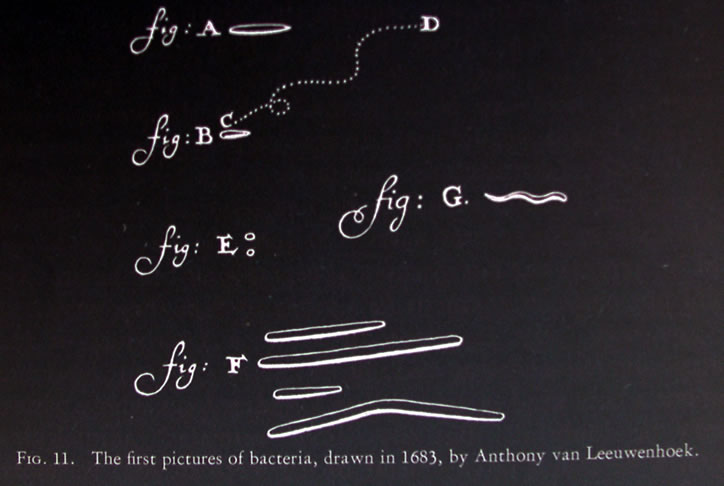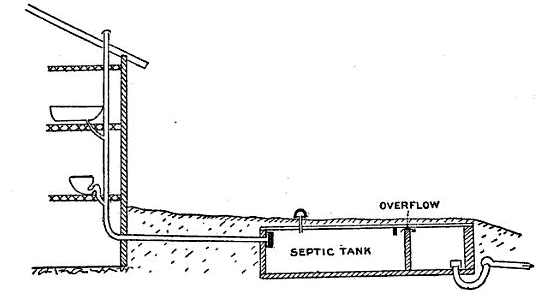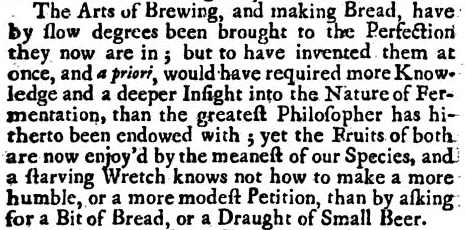Microbes of Merit, by Otto Rahn
Author: M. Crasnier-Mednansky, Ph.D., D.Sc.Copyright © 2010 Mednansky Institute, Inc.
The delightful book Microbes of Merit by Otto Rahn (1881-1957) is devoted to the 'many good bacteria' so valuable to us. It is not obsolete; it steers its reader towards a sharp perception of these bacteria, and conveys conceptual knowledge. As soon as 1945, it outlines our dependence on these 'microbes of merit'. In their 1956 book The microbe’s contribution to biology, A. J. Kluyver and C. B. van Niel pay tribute to Otto Rahn by stating, "Nowadays most scientists are vaguely aware that something will go wrong if somebody were to succeed in exterminating the microbe world. Few people, however, realize how quickly terrestrial surroundings would deteriorate, transforming our greenest pastures and our tropical forests into barren areas. Further disconsolate horrors of life on a microbeless earth are excellently described by Rahn in his Microbes of merit."
Otto Rahn was Professor of bacteriology at Cornell University. In 1979 the genus Rahnella was named after him following the characterization of Rahnella aquatilis whose natural habitat is water. He is remembered at the Cornell University website for a 1932 monograph Physiology of Bacteria. His 1939 publication Mathematics in Bacteriology is believed to be the first of its kind, at least in the English language.
Figure 11 of the 1946 second printing of Microbes of Merit
These figures of bacteria from the human mouth were sent to the Royal Society of London by Antony van Leeuwenhoek (1632-1723) with a letter dated September 17, 1683
"… Since this is not a textbook, we can enjoy the fact of life without squabbling about definitions…", the author mentioned. We can therefore wonder about the smallness of the individual bacterium and its mode of multiplication, the amazing appetites of bacteria, their relatives, and what will be the world without microbes. Oh, how good these bacteria are to city people, farmers…

Diagram showing the method of applying the septic tank to a farm house, from Agricultural BacteriologyGoogleBook by Herbert William Conn, 1918 third edition
Bacteria, yeasts and molds also blunder; they spoil our food, sometimes for our own good. Think of sauerkraut, buttermilk, vinegar, cheese, all products of 'domesticated' bacteria! And without 'specialized' yeasts grape juice will not be turned into wine, and malted barley into beer.

From The Fable of the Bees: or, Private Vices, Publick BenefitsGoogleBook by Bernard Mandeville (1670-1733), Volume 1, first published in 1714
All chapters are nicely illustrated with photographs and drawings. The following chapters 'The Discovery of Bacteria', 'The Compromise on Foods', 'Industry Harnesses Bacteria' and 'Bacteria Replace Guinea Pigs' are historically significant. There is ingenuity in the author's 1941 census of bacteria in the United States and boldness; it had never been done before. Finally the wide usefulness of microbes is exacerbated in the epilogue 'The world without microbes'.
Figure 59 of the 1946 second printing of Microbes of Merit
The manners and customs of the ancient Egyptians by J. G. Wilkinson was published in five volumes in 1841
From all the benefits brought out by our tiny little friends one is most precious. It is the knowledge which was generated by studying them, after we were finally able to 'see' them. Their study generated new methods of approach for experimentation and greatly benefited mankind by a better understanding of life in general.
Suggested Reading:Clifford Dobell's labor of love: Antony van Leeuwenhoek and his 'little animals' by P. Pennywagon, 2010
Physical methods of sterilization of microorganisms by Otto Rahn, in Bacteriological Reviews, 9:1-47, 1945, PDF at Archive of Microbiology and Molecular Biology Reviews
The microbe's contribution to biology by A. J. Kluyver and C. B. van Niel, 1956
Minst.org Online Library Index